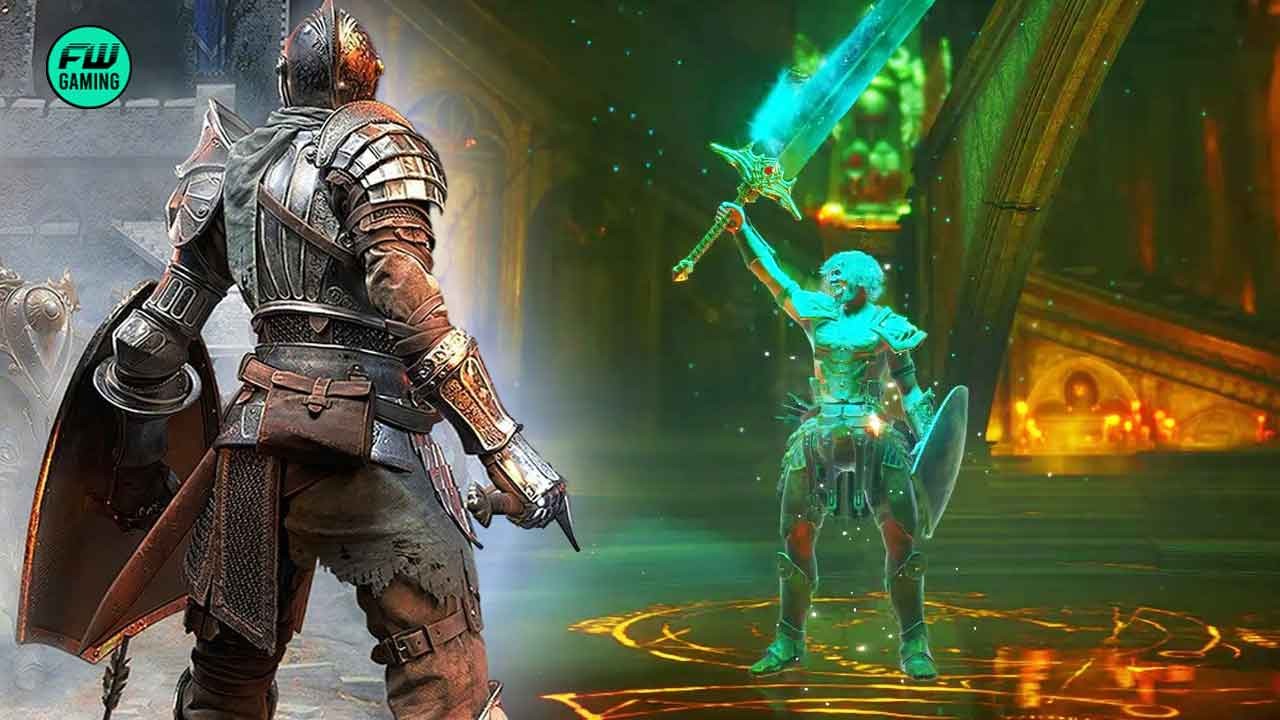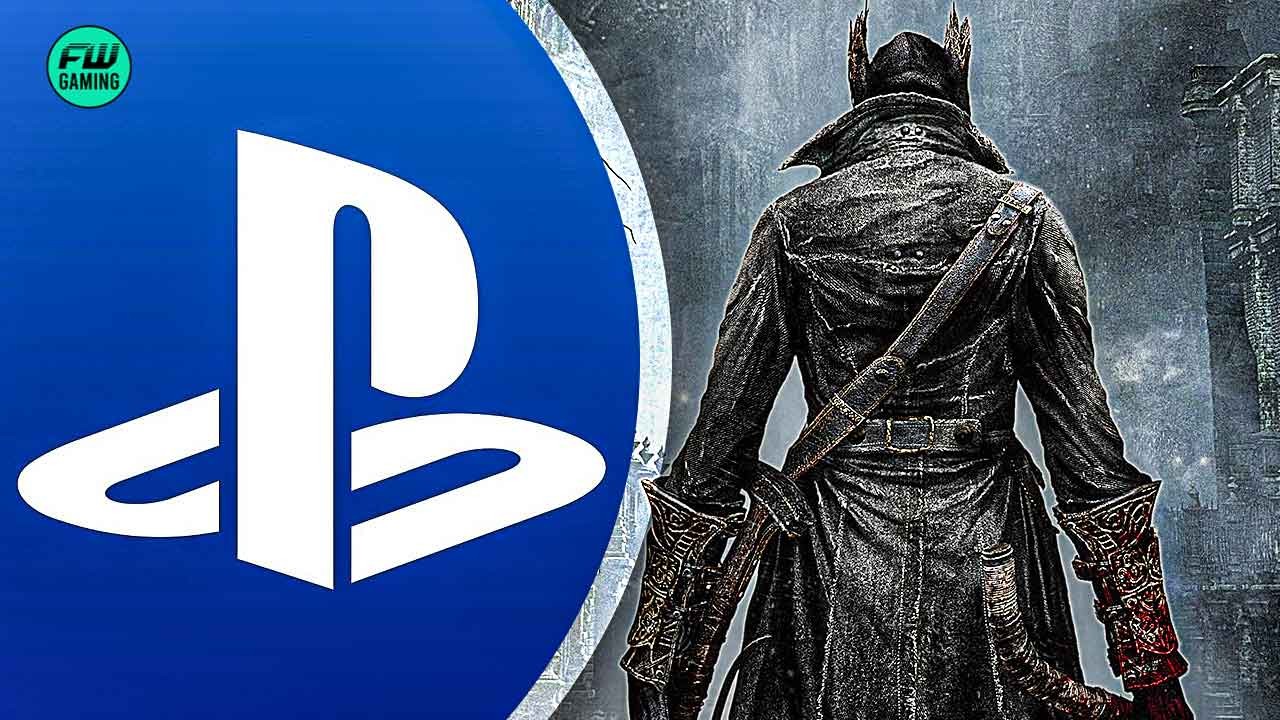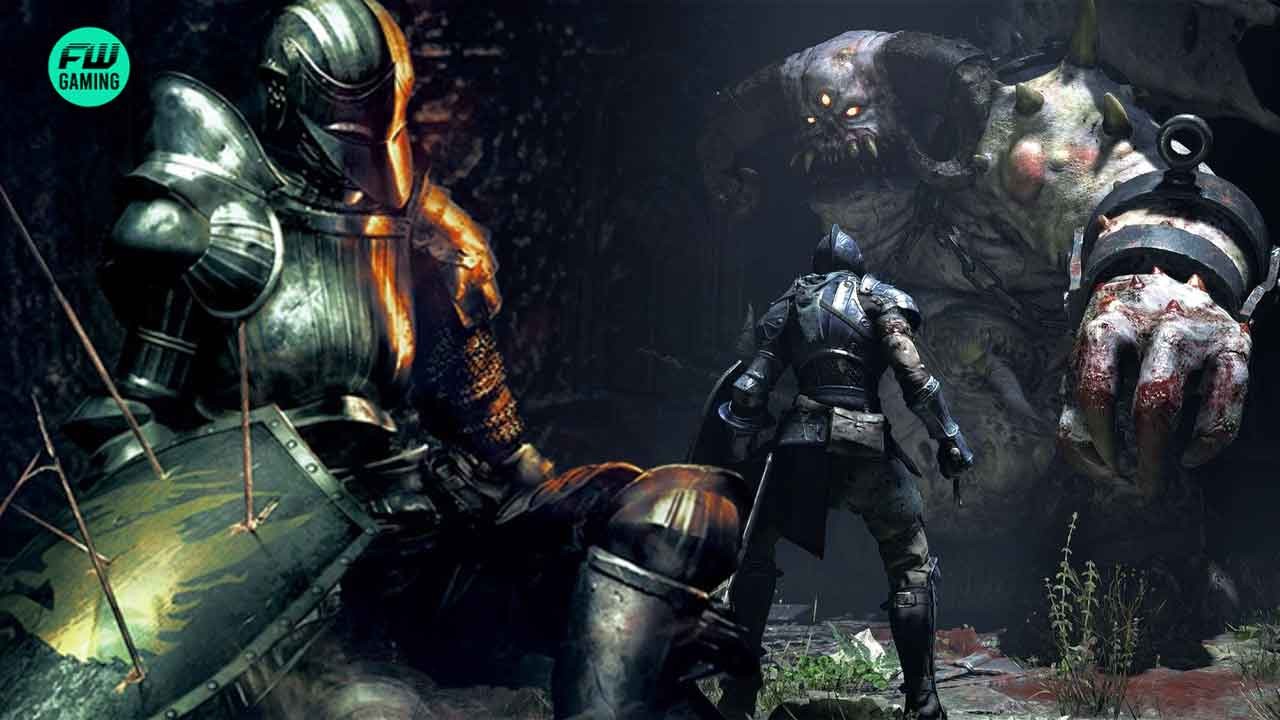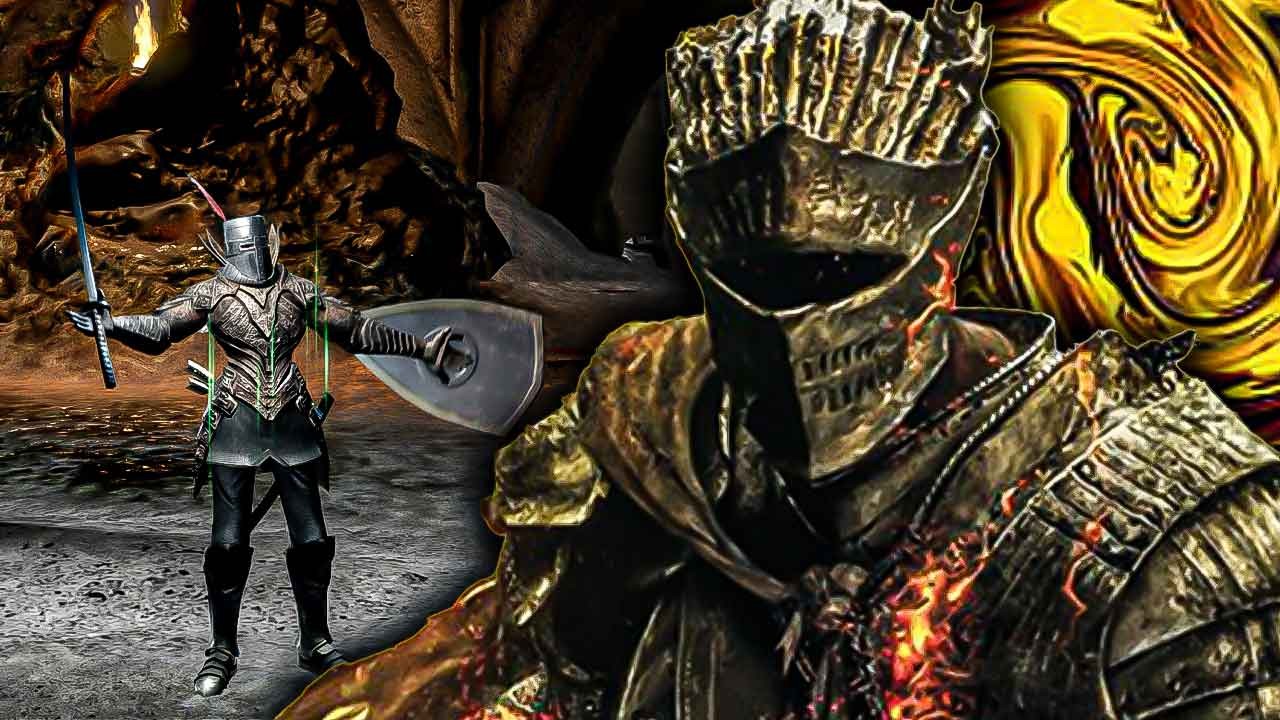Demon’s Souls‘ journey has been nothing short of jaw-dropping. Doomed from its inception as a failed project at FromSoftware, it was taken over by a certain enterprising developer named Hidetaka Miyazaki, and the rest is history.
The ‘Praise the Sun’ emote – the protagonist raising their arms in a gesture of reverence – is also a FromSoftware staple that’s synonymous with the Soulslike genre and its progenitor, Dark Souls. However, the origins of this gesture may come as a surprise to many.
One FromSoftware Exec Hated The Emote, But Hidetaka Miyazaki Didn’t Listen
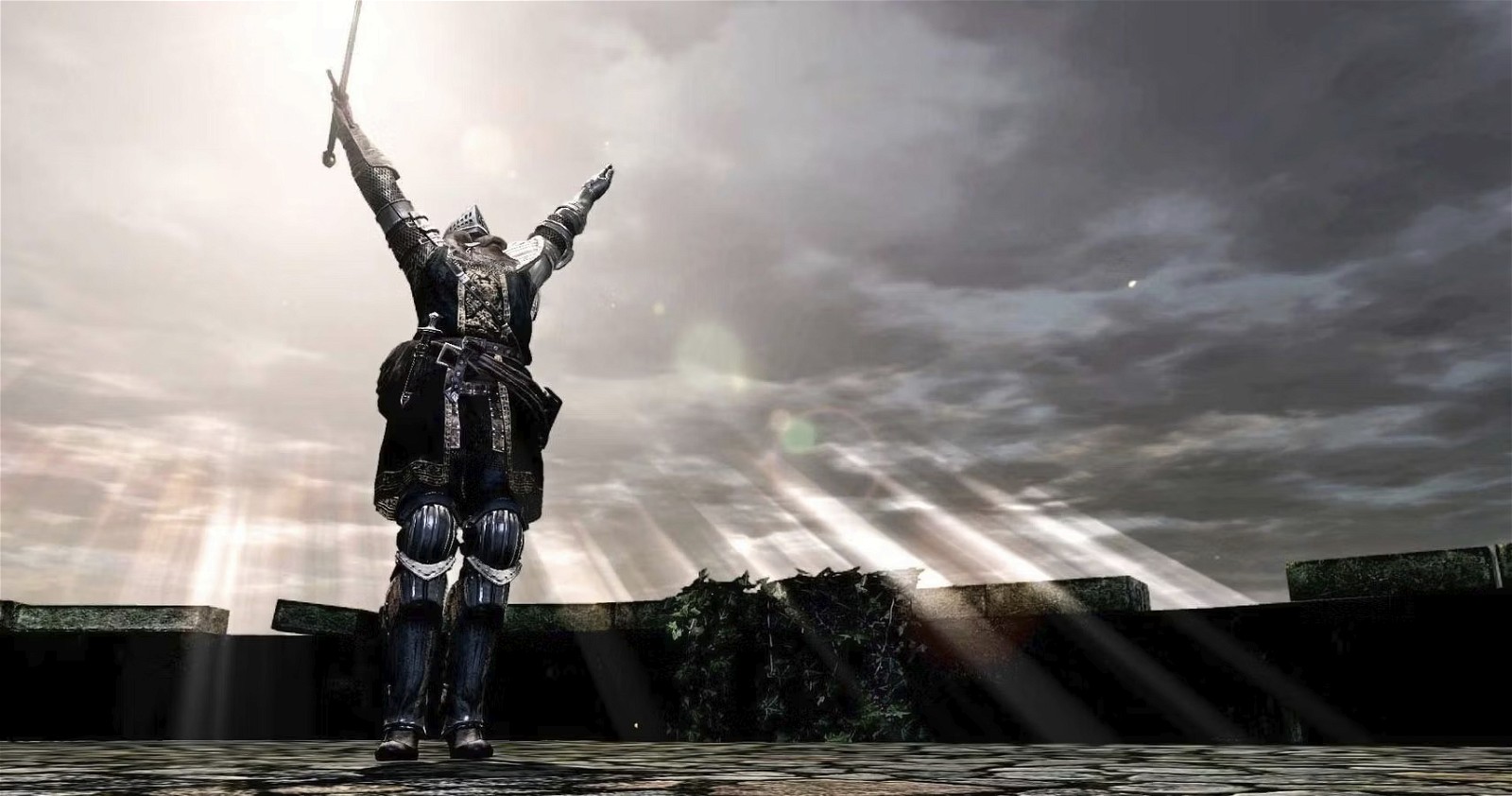
Turns out Demon’s Souls is not only the pioneer of the Soulsborne genre, but also the beloved ‘Praise the Sun’ emote. However, in the Dark Souls Design Works book, Miyazaki explained how a higher-up at FromSoftware was opposed to the iconic gesture:
When I presented [Demon’s Souls] to the rest of the company I showed them that pose and one of the higher ups told me it just wasn’t cool enough.
Miyazaki assured the executive that he’d remove it from the final game, but secretly left it in anyway, and it turned out to be an absolute hit with players. However, it started picking up serious steam in the game’s spiritual successor, Dark Souls.
Praise The Sun Found New Meaning In Dark Souls
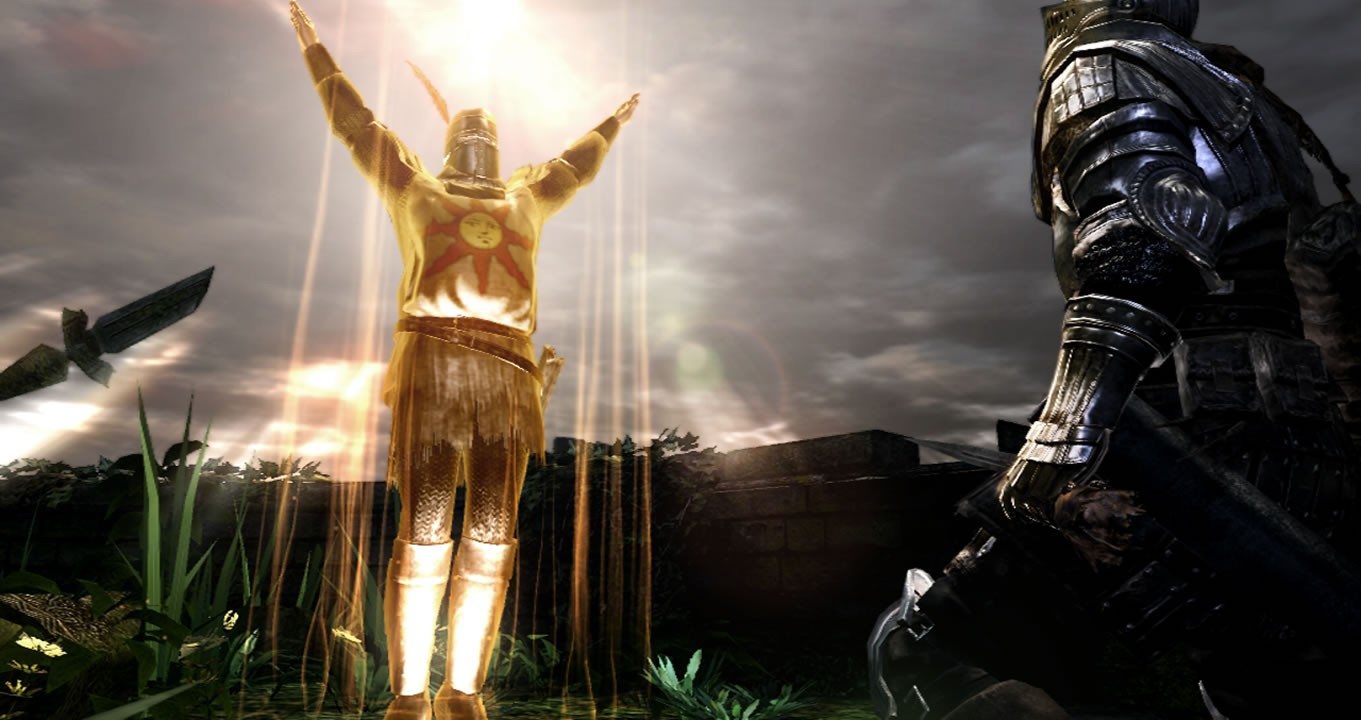
In Dark Souls, the ‘Praise the Sun’ emote found its true home, as it was introduced through Solaire of Astora, the optimistic Warrior of Sunlight. The pose took on a deeper meaning here, as Solaire’s unwavering belief in the sun was its perfect implementation. Players could not only mimic his gesture, but also join his covenant Warriors of Sunlight to aid others online.
The internet, of course, did what it does best. The ‘Praise the Sun’ emote quickly became a meme, a symbol of both the grueling difficulty and the strangely comforting nature of the Soulslike genre. Players adopted it as a way to celebrate victories, mourn losses, and connect with fellow warriors struggling through the same tribulations.
From a rejected idea to a beloved meme, the rise of ‘Praise the Sun’ is a sounding demonstration of Miyazaki’s unspoken creative knack of resonating with players. It also speaks to the importance of community in FromSoftware games. The emote serves as a shared language, a way for players to acknowledge each other’s struggles and triumphs.

Finally, the emote signifies the inherent tension of the genre itself. The sun, while a symbol of hope, can also be a source of harsh light and scorching heat. Similarly, the Soulslike experience is a double-edged blade.
It offers moments of exhilarating victory, but also throws players into the pits of frustration. Yet, like Solaire, players persist, raising their metaphorical arms towards the sun and reaffirming their belief in its higher power. Most commonly after defeating a tough boss.

